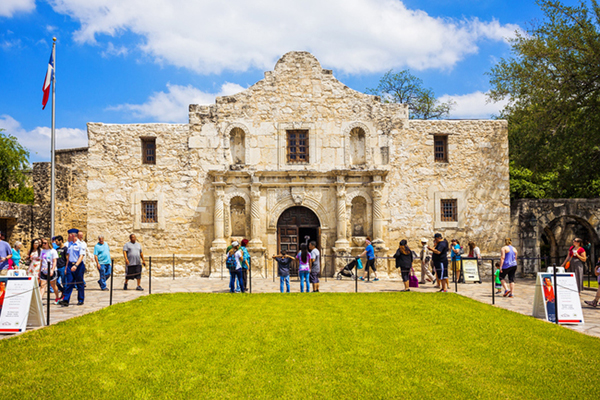- La Feria Community Holds Succesful Business Mixer Event
- Little Nashville to Take Place in Downtown Mercedes
- Lions Basketball Captures District Gold
- La Feria ISD Students Compete in Regional Chess Tournament
- Lions End First Half of 32-4A on a High Note
- La Feria ISD Held Another Successful Parent Conference
- Strong Appearance for Lions at Hidalgo Power Meet
- LFECHS Students Get to Meet Local Actress
- Students Participate in Marine Biology Camp
- Two LFECHS Students Qualify for All-State Band
Report: Passing Anti-LGBT Bill Could Cost Texas Billions
- Updated: December 8, 2016

A new report finds that major Texas travel and entertainment destinations, such as the Alamo in San Antonio, could lose billions of dollars if the state passes an anti-LGBT “bathroom bill.” Photo: iStockphoto
by Mark Richardson
AUSTIN, Texas – Some state leaders are prioritizing a so-called anti-LGBT bathroom bill for the upcoming session of the Legislature, but a new report warns that passage could cost Texas billions of dollars and thousands of jobs.
The Texas Association of Business has released a study pointing out that the backlash from passing a bill forcing people to use the toilet of the gender on their birth certificate could cost the state’s businesses up to $8.5 billion and 185,000 jobs.
Chuck Smith, CEO of Equality Texas, an LGBT advocacy group, says one business segment is likely to be the hardest hit by protests and boycotts.
“There are certain industries that are on the front line of damage, and those would be those that deal with travel and tourism, conventions, sporting events and entertainment events,” he points out.
Some state leaders, particularly Lt. Gov. Dan Patrick, have put the bathroom bill, which sponsors say protects religious freedoms, at the top of their agenda. But others, such as House Speaker Joe Straus, say there are more important issues.
Smith says there are other bills that have been, or are expected to be, filed that would limit the rights of the state’s LGBT community.
“There has been legislation filed that would prohibit Home Rule Charter cities in Texas from passing non-discrimination ordinances,” Smith points out. “The legislation would also nullify any existing non-discrimination ordinances.”
Smith adds that recent polls show about 75 percent of Texans oppose measures that target groups for discrimination. He says passing that kind of law could damage the Texas economy.
“We are supportive of the effort to educate people about how damaging this discriminatory legislation could be for our state’s economy, for our state’s brand and for the business community, which accounts for the majority of the tax revenues in the state,” he states.
Smith says states such as North Carolina and Arizona lost hundreds of millions of dollars after passing “religious freedom” bills aimed at LGBT and other groups.


